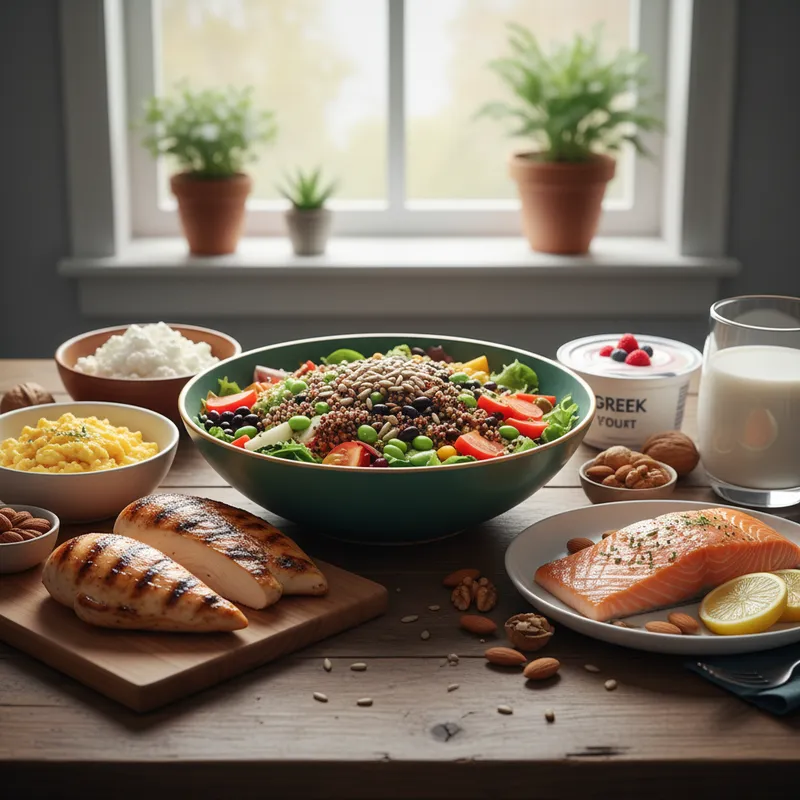
Ready to Start Your Wellness Journey?
Become a Herbalife Preferred Member and enjoy exclusive discounts of up to 25% on all products.
BECOME A PREFERRED MEMBERWHAT IS PROTEIN?
WHAT IS PROTEIN?
An essential component of every cell in the body, protein is a macronutrient made of 22 ‘building blocks’ called amino acids bonded together to form protein’s structure. Proteins have different functions in the body, including contributing to a growth in muscle mass, and contributing to the maintenance of muscle and normal bones.
All these functions are very important to for your body to function at its best, so an adequate amount of daily dietary protein will help you to keep healthy.
AM I GETTING ENOUGH?
If your protein intake is not meeting your nutritional needs, you will likely fi nd it more diffi cult to sustain a balanced diet and reach your goals. For this reason, the Herbalife Nutrition Philosophy recommends getting up to 30% of your daily calorie intake from protein.
During exercise, your body requires a higher intake of good quality protein to build and maintain muscle (lean mass), and promote recovery, so make sure you adjust your protein needs accordingly; consuming more if you are highly active or want to gain muscle.
For example, an active male who consumes up to 2,000 kcals per day and is looking to build muscle should aim for up to 150g protein in his daily diet. For a woman who wants to control her weight and consumes up to 1,400 kcals per day, her recommended daily intake would be between 52-105g protein.
SO WHAT SHOULD I EAT?
Ideally, a combination of both vegetable and animal protein sources each day. Soy is one of the best vegetable sources of protein as it is a ‘complete’ protein that provides the adequate proportion of all the essential amino acids. Other vegetable protein sources such as nuts, seeds and lentils (which are also low in fat, have no cholesterol, and are a source of fi bre) are not ‘complete proteins’, so try to combine diff erent vegetable proteins to provide a better proportion of all 9 essential amino acids.
As for animal protein, high quality sources include lean white meat, fi sh, poultry, eggs and low-fat dairy products, which provide the additional benefi ts of iron, zinc and B vitamins.
WE’VE EXPLAINED HOW MUCH PROTEIN YOU NEED, BUT DO YOU KNOW HOW MUCH PROTEIN IS IN THE FOODS YOU MAY ALREADY BE CONSUMING?

Ready to Start Your Wellness Journey?
Become a Herbalife Preferred Member and enjoy exclusive discounts of up to 25% on all products.
BECOME A PREFERRED MEMBER